Key Takeaways
- Building a home gym doesn’t have to be expensive — start small and upgrade gradually.
- Focus on essential, multi-purpose equipment first.
- Use budget-friendly hacks like DIY weights and resistance bands.
- Take advantage of online workouts instead of costly memberships.
- Planning and smart shopping can save you hundreds of dollars.
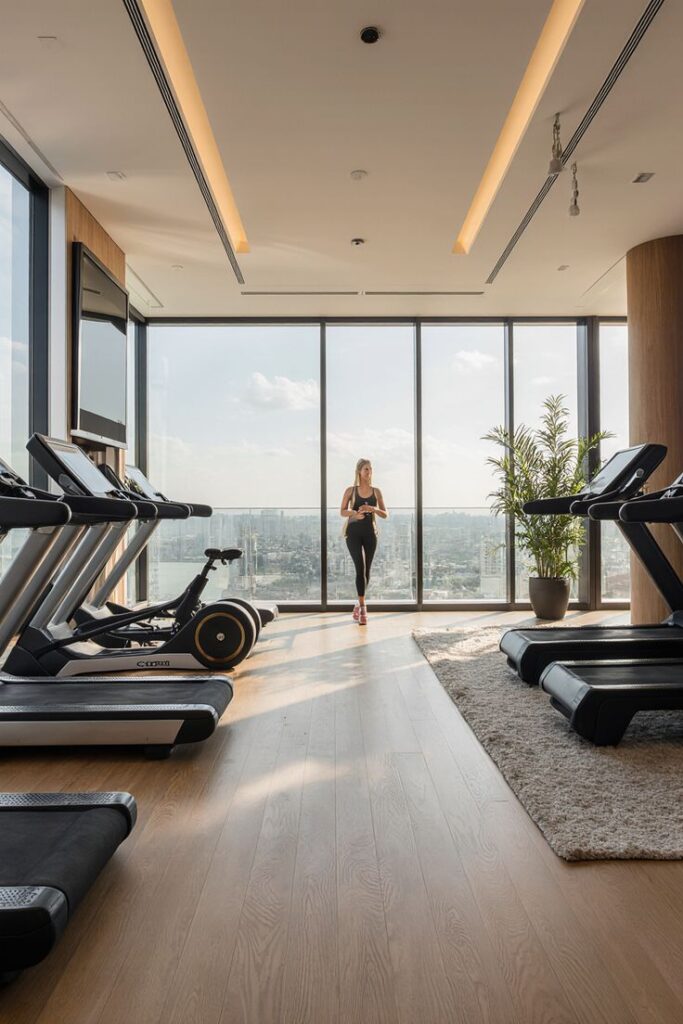
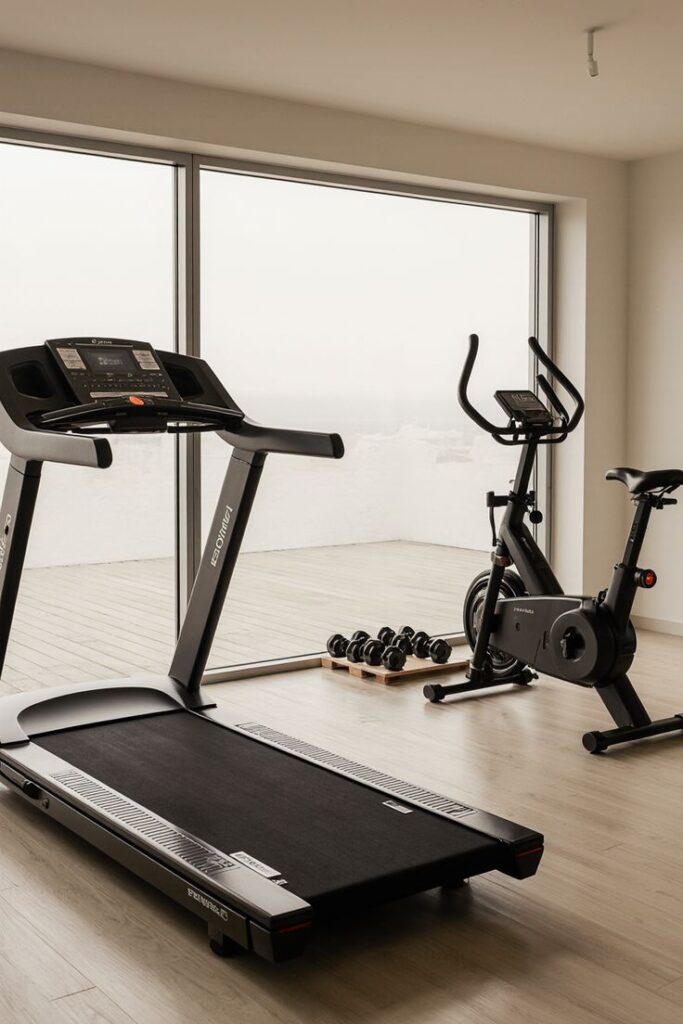
Introduction
Dreaming of having your own home gym but worried about the cost? You’re not alone. With gym memberships in the U.S. averaging $600–$900 per year (Statista, 2025), creating a budget-friendly setup at home has become more appealing than ever.
The good news? You don’t need thousands of dollars or a spare garage to get started. With a little planning, you can create an effective workout space right at home — without breaking the bank.
1. Set Your Budget and Prioritize Essentials
Before buying anything, decide how much you’re willing to spend. A realistic home gym budget can range from $100 to $500 when starting small.
Focus on Versatile Equipment
Invest first in gear that covers multiple exercises:
- Resistance bands → strength training & mobility
- Adjustable dumbbells → replace multiple weight sets
- Yoga mat → stretching, core workouts, and mobility
- Jump rope → cardio without taking up space
Pro Tip: Start with just 2–3 items and expand later as your needs grow.
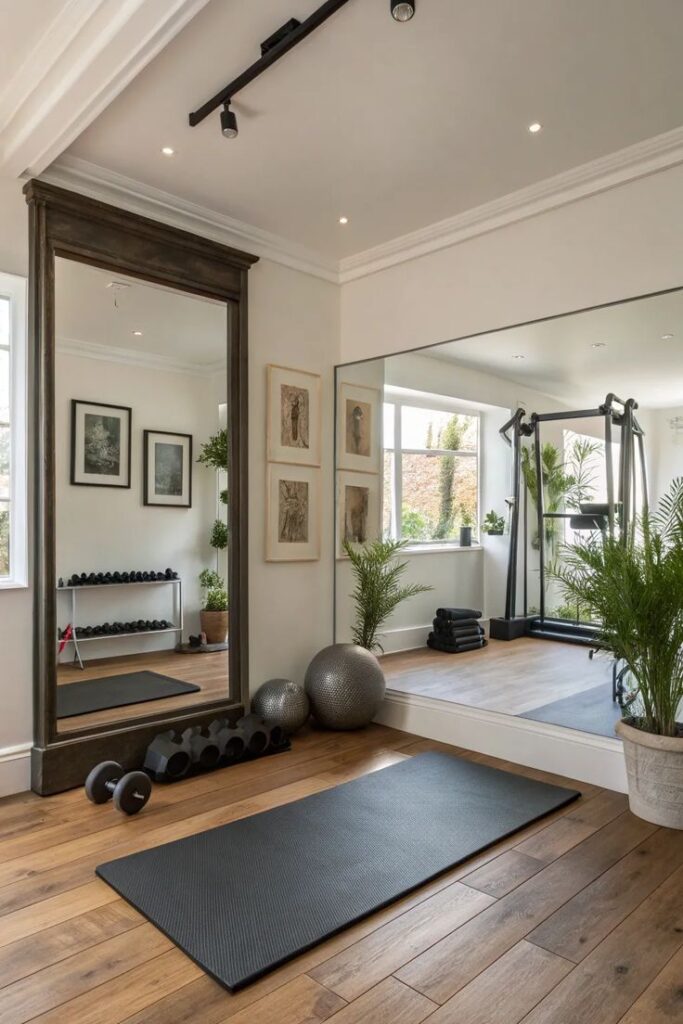
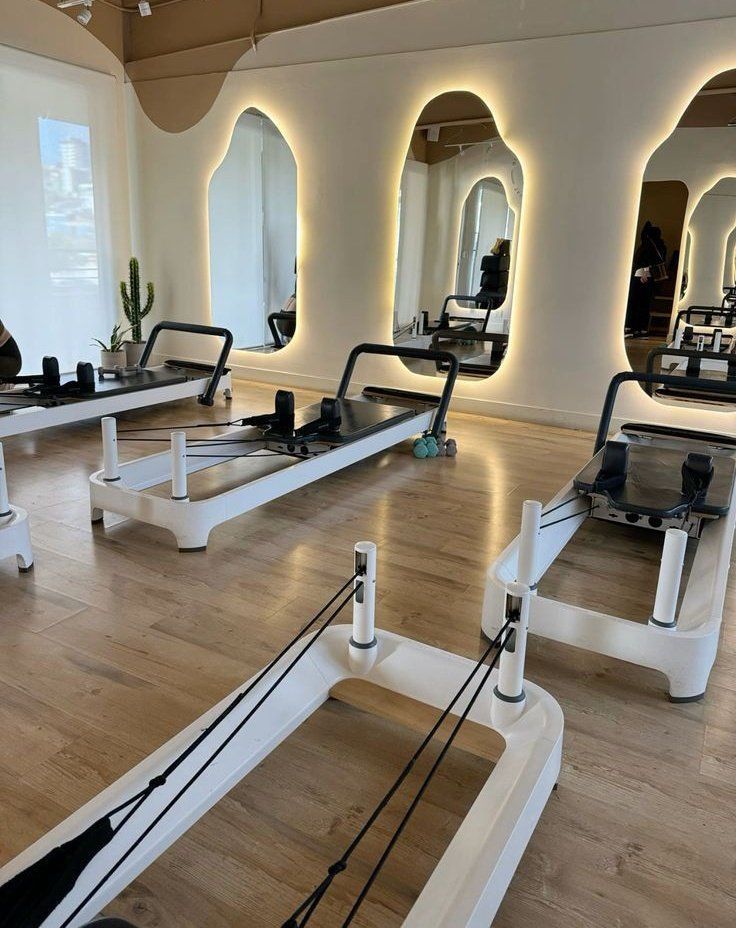
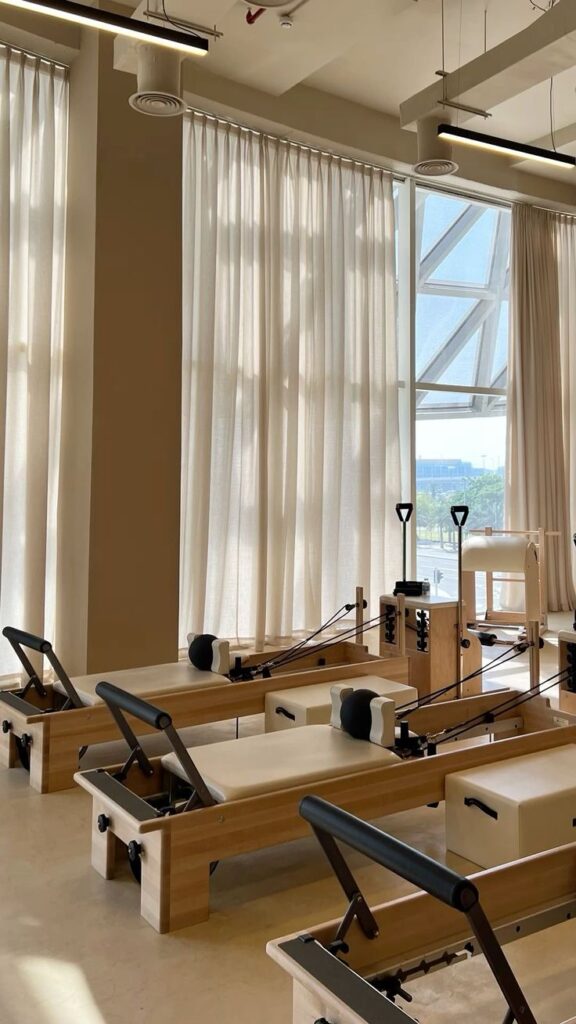
2. Choose Space-Saving Equipment
If you live in an apartment or have limited space, prioritize compact, foldable, and multi-use gear.
| Equipment | Approx. Price | Benefits |
|---|---|---|
| Resistance Bands | $10–$25 | Full-body workouts |
| Kettlebells | $20–$50 | Strength + cardio |
| Adjustable Bench | $80–$120 | Upper & lower body exercises |
| Doorway Pull-Up Bar | $25–$40 | Core + back + arms |
3. DIY and Budget-Friendly Hacks
Why buy everything brand new when you can DIY or repurpose?
- Fill backpacks with books → instant weighted squats & lunges
- Use water jugs as kettlebells
- Build a homemade plyo box with scrap wood
- Check Facebook Marketplace or Craigslist for free or cheap equipment
Bonus: Many gyms upgrade equipment regularly — call local gyms to ask if they sell old gear at a discount.

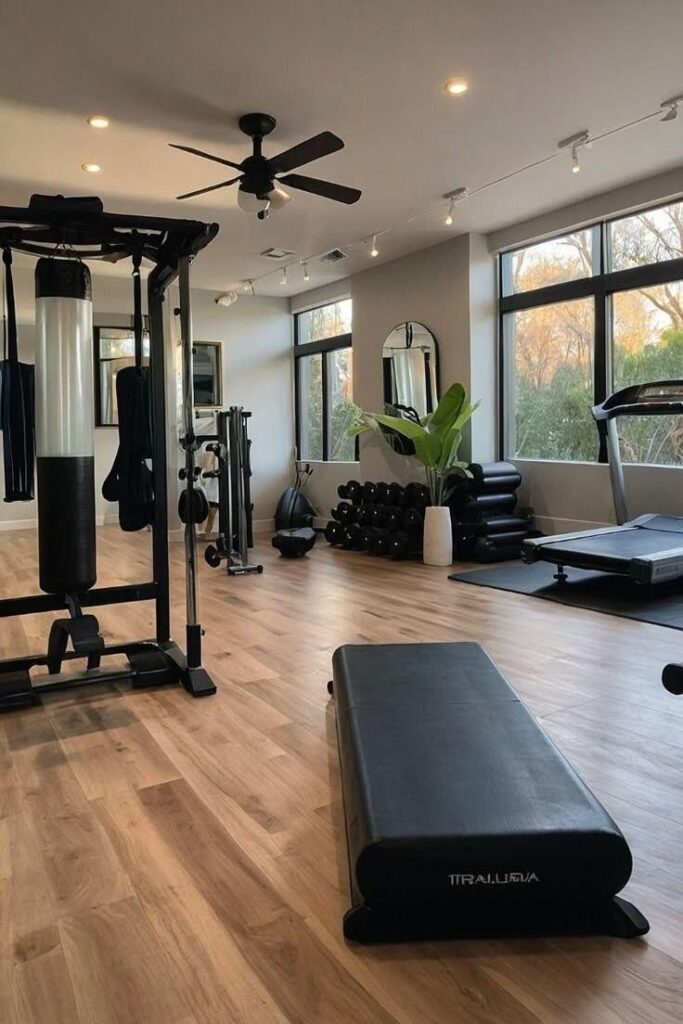
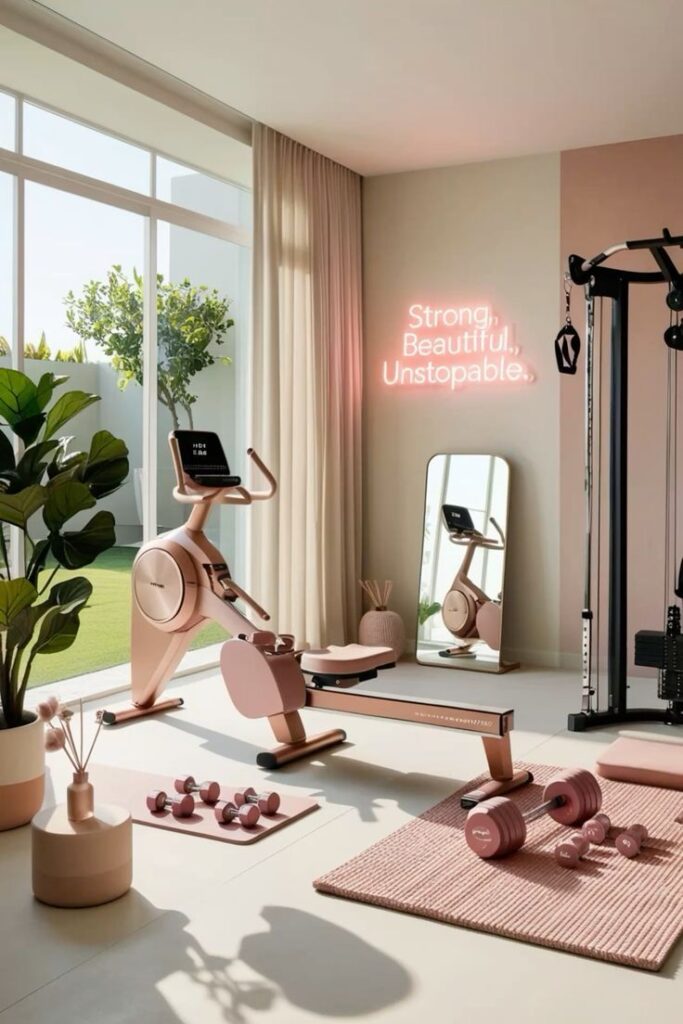
4. Go Digital: Free Workouts & Training Apps
Skip expensive personal trainers and memberships.
Instead, use free or low-cost online resources:
- YouTube → thousands of free workouts
- Nike Training Club app → free HIIT, yoga, and strength sessions
- FitOn → beginner-friendly routines with tracking tools
Combine these with your basic equipment to create customized workout plans without spending extra.
5. Build Gradually, Not Overnight
You don’t need a fully equipped gym right away.
Start with the basics, train consistently, and add more gear only when necessary.
Example Setup Plan
| Month | Investment |
|---|---|
| Month 1 | Resistance bands + yoga mat |
| Month 2 | Adjustable dumbbells |
| Month 3 | Pull-up bar + kettlebell |
| Month 4 | Optional treadmill / bench |
This approach helps you spread costs and avoids buying stuff you won’t actually use.
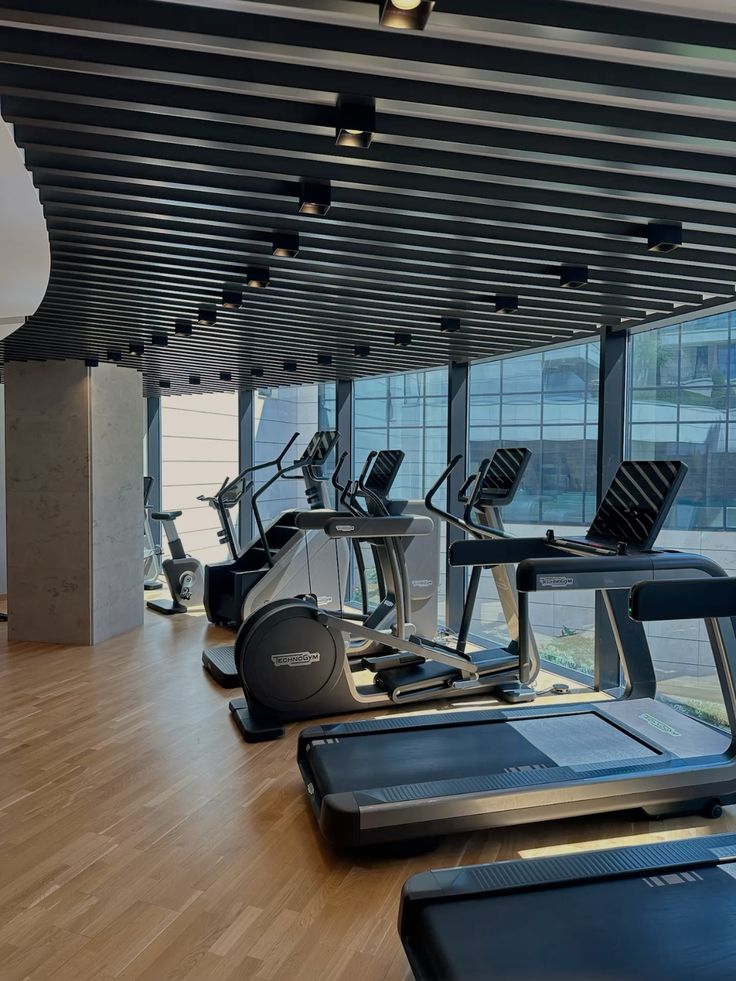
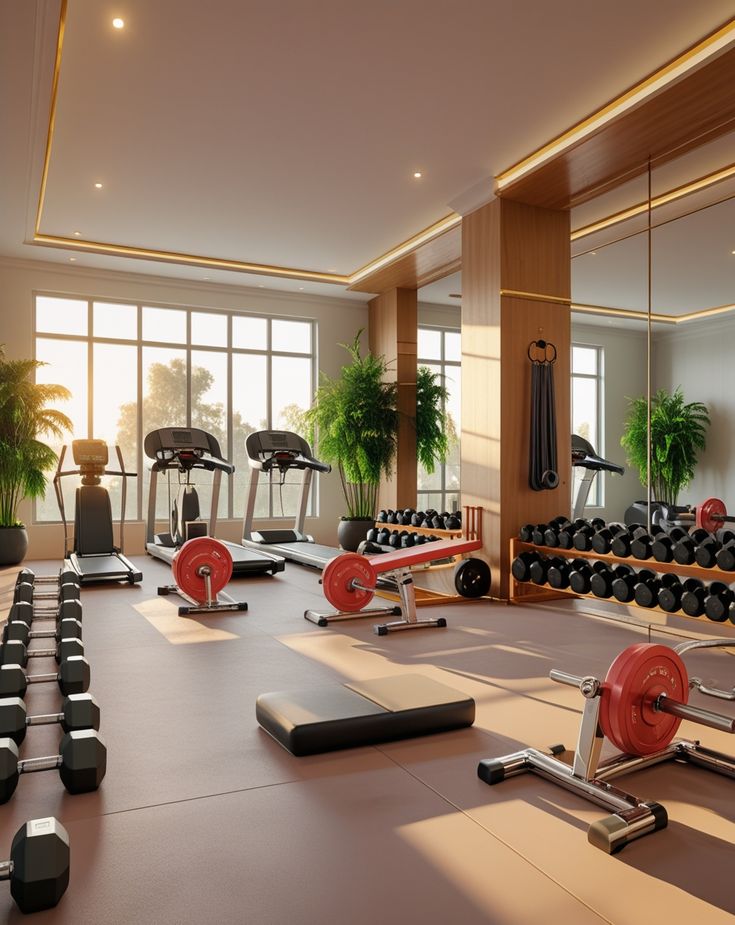
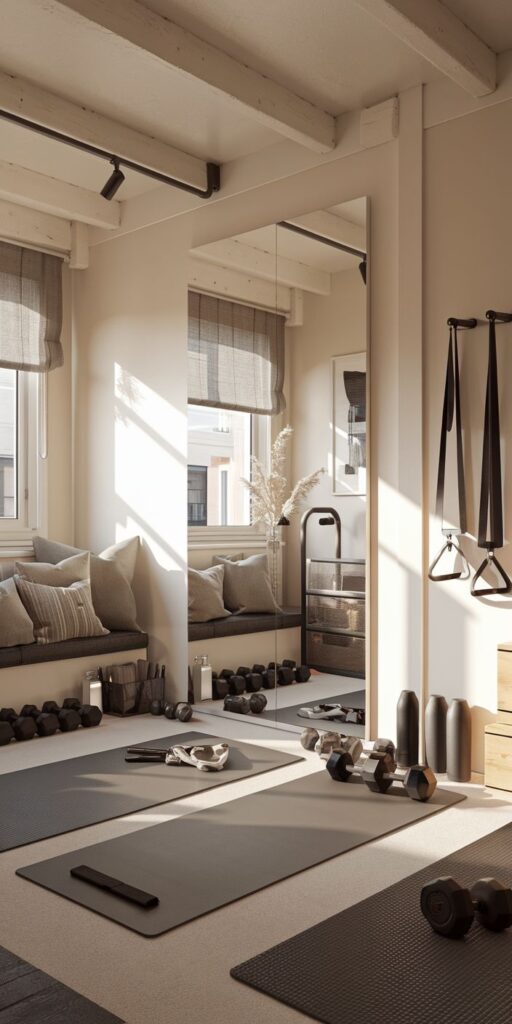
6. Extra Tips to Save More
- Buy off-season → equipment is cheapest in spring
- Look for bundles → sets often cost less than individual items
- Follow deals → Amazon Prime Day & Black Friday have massive fitness discounts
- Join local community swaps → many fitness groups exchange gear for free
FAQs
1. How much does a decent home gym cost?
You can start with $100–$300 if you focus on multi-purpose equipment and budget hacks.
2. Is a home gym better than a gym membership?
For convenience and long-term savings, yes. But if you need advanced machines, a gym might still be useful.
3. How can I make a home gym in a small apartment?
Choose foldable and space-saving equipment like resistance bands, adjustable dumbbells, and doorway pull-up bars.
4. Can I get fit without expensive machines?
Absolutely! Bodyweight workouts combined with simple, affordable gear are highly effective.
Conclusion
Building a home gym on a budget is easier than ever in 2025. By starting small, shopping smart, and using free digital resources, you can create a functional workout space for less than the cost of a yearly gym membership.
The key? Plan, prioritize, and stay consistent — your wallet and your body will thank you.




